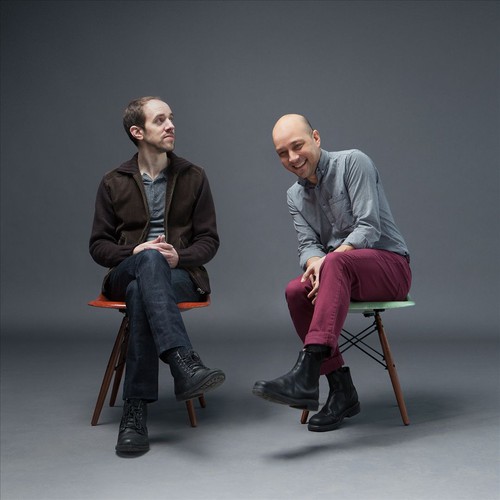

It all started there.īenjamin: Which at the time was not really cool. Benjamin was a friend of mine, he had this great keyboard project going, and had a really cool idea to mix using sequencers and live music.

I didn’t have a band I was just playing Nirvana and Green Day covers at that point. My mom told me that I was expected to get up in front of everyone with my band. So you guys are like an old married couple.īrandon Summers: Yeah, we’ve been together as a band for half of my life, if that’s not crazy enough.īenjamin Weikel: Clearly the best half of your life.īrandon: I was sixteen when we started Helio Sequence and it was all because of this family picnic that I was told that I was playing about a week in advance. The Helio Seqence begins a Southern-focused wintertime tour on January 14 in San Antonio, Texas, reaching the Pacific Northwest by February.Īlisa Ali: You put out your first EP in 1999, but you got together in 1996. Read highlights of the inteview and watch the performance videos below. The record, out now on Sub Pop, is awash in dualities, both carefully crafted and freewheeling, which also describes Summers and Weikel's recent conversation with The Alternate Side. Listen to The Helio Sequence's exquisite four-song session when it airs on TAS on 91.5 WNYE this Friday, January 11 at 11 a.m. The setback was a push forward, giving singer/guitarist Brandon Summers and drummer/keyboardist Benjamin Weikel the perfect excuse to purchase gear - much of it with a vintage twist - and discover a new path that led to their fifth album, Negotiations. Keep Your Eyes Ahead is content to see where merely questioning gets you.The flood that severely damaged The Helio Sequence's studio and equipment a few years ago also afforded the Portland, Oregon duo the chance to start anew with a clean slate. Summers got religion right during "Hallelujah"- "We don't want answers, anyway"- but the wisdom is equally appropriate for his and Weikel's newfound skills. Even when it fails, Keep Your Eyes Ahead has a refreshing maturity and presence, old enough to admit that folk jamboree and synth-rock can coexist, hopeful enough to think Joshua Tree, or at least Ocean Rain, was a really good idea. On Keep Your Eyes Ahead's final track, the harmonica-led "No Regrets", the two get it right: clacking percussion behind a drunken sing-a-long that suggests that, yeah, the Helio Sequence might one day pull off this Americana tip, too. Lines like "Drank the dark wine of the New York night/ With shattered mind across the borderline" do not help. Singers like "carrying" songs, and Keep Your Eyes Ahead falters when Summers and Weikel set aside their wiring and aim for folk sounds subtly aided by ambient backgrounds, a swell idea if your slow tracks don't sound like the ballads from Dylan's Down in the Groove. The unfortunate side effect of Summer's newfound expertise is that, well, he's apt to use it. The muscular title track wrestles lustily with the Stone Roses: "You came on like you knew you would/ Wearing high-top shoes walking home from school/ And I just 'bout fell right off the balcony." The pulsing sequencer of "Hallelujah", the album's longest and most strident anthem, plays counterpoint to Summer's long, loose solos. The push-push verses of "Can't Say No" and the tremble-y guitars of "Lately" encompass the flat skies and multitudinous bridges of hometown Portland "The Captive Mind" eagerly recalls Modest Mouse's "Gravity Rides Everything". Keep Your Eyes Ahead is an ambitiously large album, gassing Summer's voice with reverb and bottle-rocketing all sorts of synths and effected guitars into lilting rock songs performed with the measure and craft of Northwest scene veterans. Summers and keyboardist/drummer Benjamin Weikel thankfully did not let this increased attention to detail and professionalism derail their ember-glow indie pop. The results lie in ascendant vocals that replace awkward growls and breathy whispers with precise notes and even phrasing. The resultant scare led Summers to a feast of indie rock anomalies: healthy living via exercise and a regular practice/recording schedule and technical improvement via singing exercises. Summers' development comes with a tidy backstory: Amidst touring for 2004 Sub Pop debut Love and Distance, Summers lost his voice, read Dylan's Chronicles, and saw a doctor who instructed him not to sing for almost two months.


 0 kommentar(er)
0 kommentar(er)
